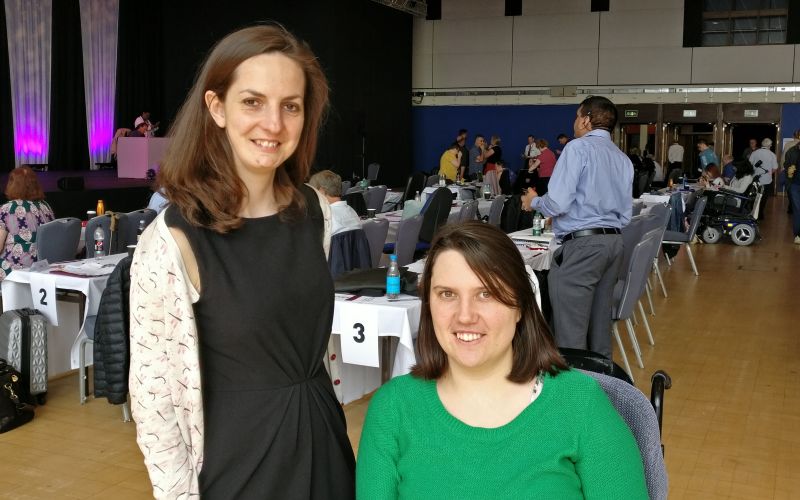Three unions are boycotting a scheme that aims to monitor the number of disabled people and other minorities working in the broadcasting industry, because of its failure to release a detailed breakdown showing figures for individual programmes.
Delegates at the TUC disabled workers’ conference in Bournemouth heard that the flaws in Project Diamond meant disabled people were “still likely to be denied access to work” and the ability to “change public perception in a positive way”.
They heard that the refusal of workers in the industry to fill in Project Diamond monitoring forms was heaping pressure on the broadcasting industry over its refusal to release programme-by-programme data.
The monitoring system was created by broadcasters BBC, Channel 4, ITV and Sky through the Creative Diversity Network, and aims to capture the equality data of all those working on programmes they commission.
But the conference also heard that if a disabled character is played on television by a non-disabled actor, that is still counted in Project Diamond statistics showing how many roles are perceived by audiences to be disabled characters.
Natasha Hirst, from NUJ, the journalists’ union, said it was “absolutely disgraceful that that is considered acceptable across the industry”.
Proposing a motion that called on the TUC to demand transparent data and for potential penalties for offending broadcasters from the regulator Ofcom – which was passed unanimously – Hirst said the industry’s failure to release detailed figures meant “we cannot drive through the change and the transformation we need to see in broadcasting”.
The Project Diamond monitoring scheme is currently being boycotted by NUJ, the Writers’ Guild of Great Britain and the media and entertainment union BECTU, although not by the actors’ union Equity.
Hirst said the boycott has been effective because workers had been refusing to fill in the monitoring forms.
She said: “It is a great example of the power of action the trade union movements can have in creating and influencing change.”
She added: “Disabled people are being denied the opportunity to work by the casting of disabled people in roles we should be filling.
“We need complete transparency from the media companies if Project Diamond is going to have the impact we need it to have. The way it is being done is wrong.”
Phoebe Kemp* (pictured, right, with Hirst), an Equity delegate, who seconded the motion, said: “We have to have access to the full statistics. We know they have the information, they won’t give it to us.”
She also raised concerns about non-disabled people playing the roles of disabled characters.
She added: “Nothing About Us Without Us. It is time for the broadcasting and entertainment industries to take note of that.”
The conference also unanimously passed an Equity motion which criticised the continuing use of non-disabled actors to play disabled characters.
Simon Balcon said that most delegates would consider such practices to be “akin to blacking up”.
He said: “Great progress has been made in the area of representation in terms of race and sexuality but much more is needed to provide realistic portrayals of disabled people.”
Mik Scarlet, an NUJ delegate, said: “When you go for a casting and you are disabled, it is most likely that you will not get the role.
“They will see you because they can tick a box to say they have seen some disabled actors and then they will give it to a non-disabled actor.
“What it means is the portrayal is not real.”
Iain Scott-Burdon, from Unison, said he was “absolutely fed up” with seeing producers “hiring fakes” for films and television dramas.
He said: “Non-disabled people playing our parts; they are as fake as you can get.
“We need real, authentic Deaf and disabled people, professionals and experts at what they do.
“We need to stop hiring fakes.”
He also highlighted a positive example in which producers hired a Deaf child actor, Maisie Sly, for the Oscar-winning short film The Silent Child, which Scott-Burdon said was “really well received by the Deaf community”.
*During the conference, Kemp performed an extract from her new one-woman play, May, based on the life of the disabled suffragette Rosa May Billinghurst

 GB News says it has nothing to apologise for, after guest suggests starving disabled benefit claimants
GB News says it has nothing to apologise for, after guest suggests starving disabled benefit claimants Disabled students set to protest over cuts in support
Disabled students set to protest over cuts in support Shock of activists as disability minister ignores disabled woman who collapsed on floor after cuts meeting
Shock of activists as disability minister ignores disabled woman who collapsed on floor after cuts meeting